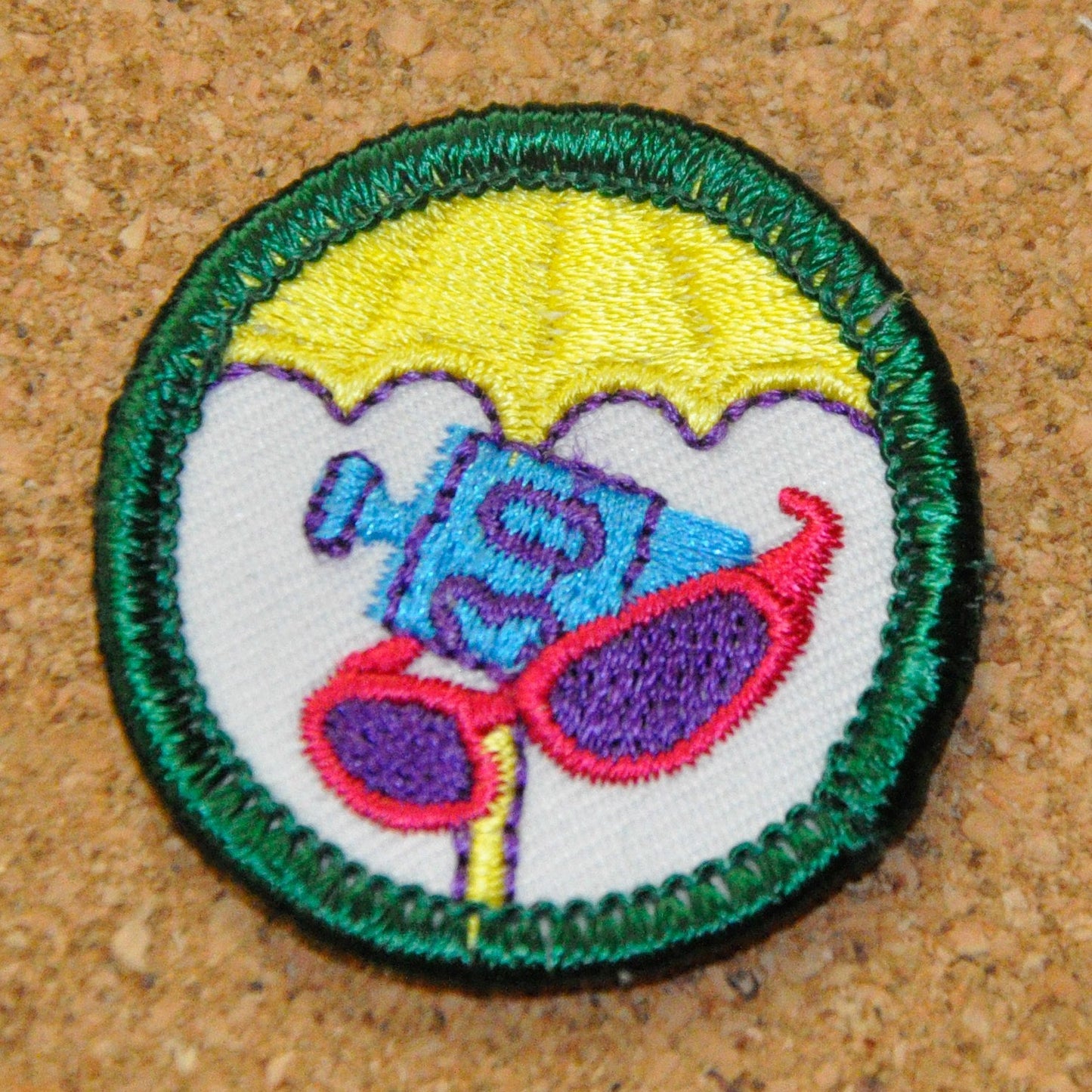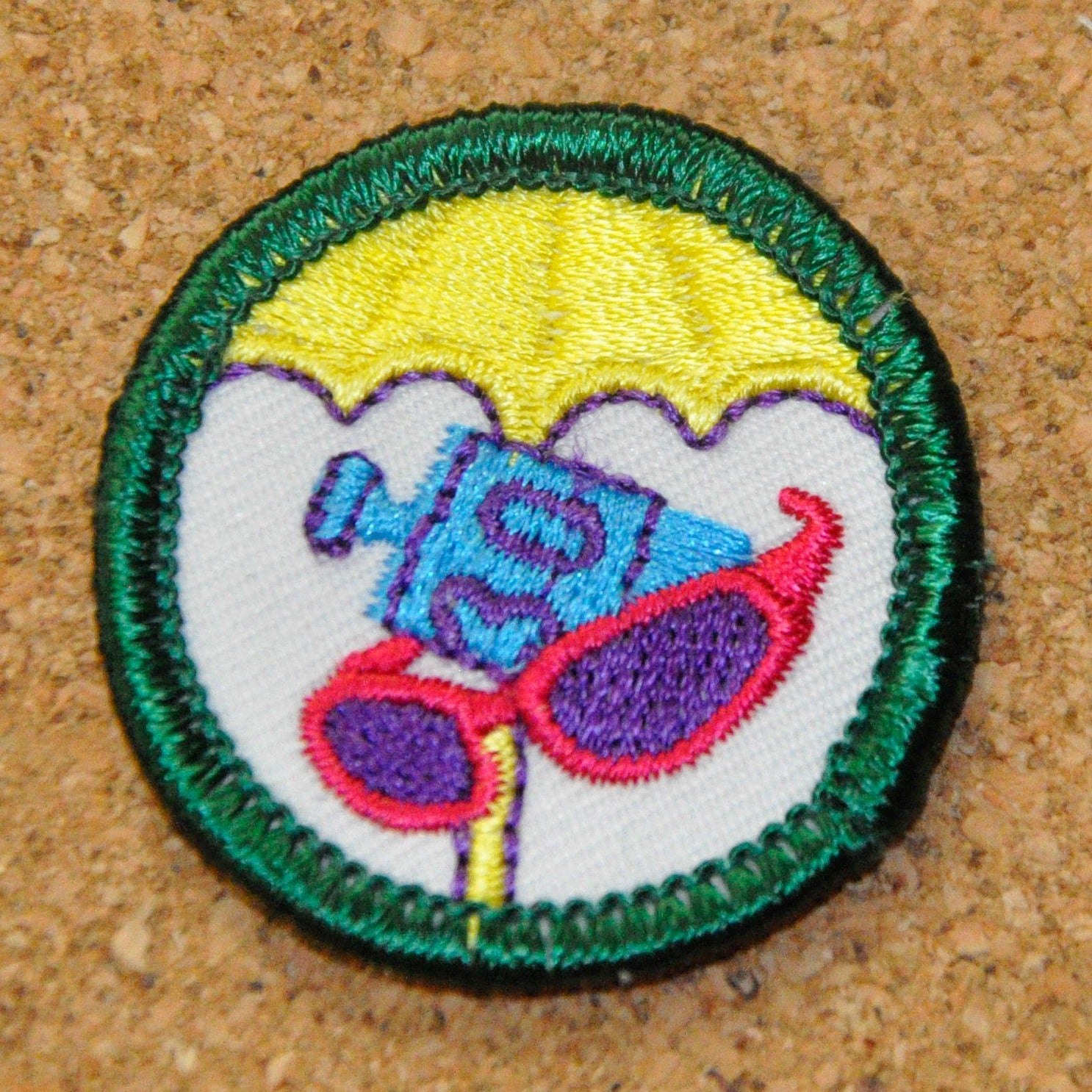1
/
of
1
Environmental Health (Junior Badge)
Environmental Health (Junior Badge)
Regular price
$2.00 USD
Regular price
$3.00 USD
Sale price
$2.00 USD
Unit price
/
per
Couldn't load pickup availability
- Sun Sensations A sunny day is often the sign for outdoor fun. Before you go out, protect yourself. Have a sun safety fashion show with a group of friends. Include items like sunscreen with UV protection of at least 15, lip balm, sunglasses that protect from UVA/UVB rays, umbrellas, a wide brim hat, and a cotton shirt as part of the show. When developing your "sun safety look," be stylish and creative. Almost anything goes as long as it helps protect you from the sun.
- The Sun Squad Create a "Sun Squad." Find young people with whom to go out in the community and educate people about sun health. Create a "sun sense" quiz: provide people with the facts about sunscreen and other ways they can protect themselves from the damaging rays of the sun. With an adult, patrol beaches, lakes, or pools to get the word out.
- Water Water Everywhere You need water to live. Learn the different ways to conserve water. With a group of friends, develop a Top 10 list of different ways you can conserve water and keep it clean, such as recycling water from fish tanks by using it to water plants.
- Goin' Fishing? With an adult, find out if the fishing spots in your area are clean. Look for warning signs posted around the area. Or call your local or state Health Department or the Environmental Protection Agency and ask which waters are safe. Find out about the kind of testing done on the waters. Share your findings with your friends and family.
- Get the Word Out Create a commercial that encourages people to focus on environmental health. Pick one of the following topics: sun safety, noise pollution, water health, safe waste disposal, or air quality. Create a catchy slogan and provide information on how to find out more about that issue.
- "Block the Spread of Lead" Relay A "lead blocker" is a food that is high in calcium and iron, such as spinach or milk. These help protect your body from the harmful effects of lead. Try this game to learn more about "lead blockers:" 1. Divide into two teams and give each team a basket or bucket. 2. Place at least ten food items some high in calcium and iro' n, and some low in these nutrients, around the room. 3. The game begins when someone shouts, "Block the spread of lead!" 4. The first person for each team grabs the bucket and races to pick up one item that she thinks is a "lead blocker." Then she races back and hands the bucket to a teammate. 5. The game continues until the players think they have all the "lead blockers." 6- A team gets one point for each "lead blocker." A team loses a point if they have a food product high in fat, like chips. The team with the most points wins.
- Environmental Times With a group of friends, brainstorm a liSt of important environmental issues in your community. Create an environmental newspaper. Ask an environmentalist, a reporter, or an editor to help you with your paper. Share your paper with family and friends.
- Smoke Free Second-hand smoke affects the air you breathe and puts your health at risk. With your troop or group, work on a "smoke-out" day for your community. Contact organizations like the American Cancer Society, Tobacco-Free Kids, or The American Lung Association and find out what's planned for your area. Or try a 1,smoke-out" day with your family fr one or more of your family members is currently a smoke._r.
- Every Breath Counts Asthma is a condition that causes a person's airways to get smaller and makes it difficult to breathe. Environmental conditions such as second-hand smoke and pollution can trigger an asthma attack. Come up with a list of at least five other things that can cause an asthma attack. How can you improve the environment to help reduce asthma triggers? Talk to a doctor or to someone who has this condition or go online for more information.
- Get the Lead Out Find out about the dangers of lead. What are the three biggest sources of lead poisoning? How can lead poisoning be prevented? How can it be treated? Contact the Environmental Protection Agency, the Center for Disease Control, or your local doctor to get information.


